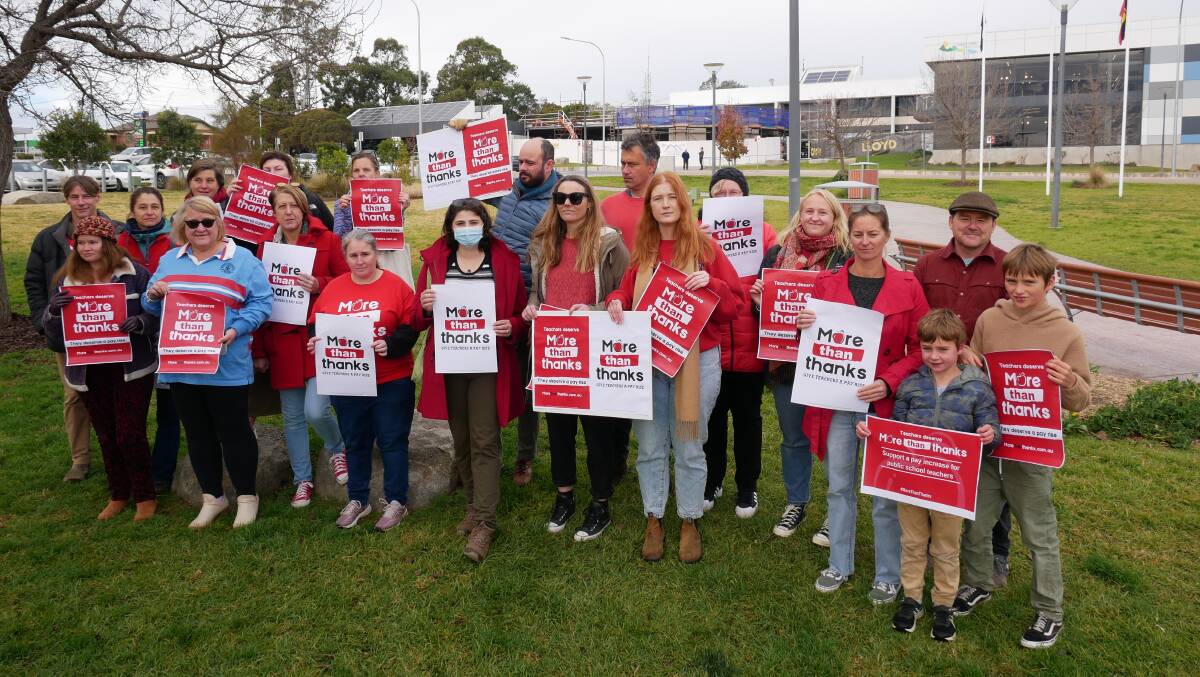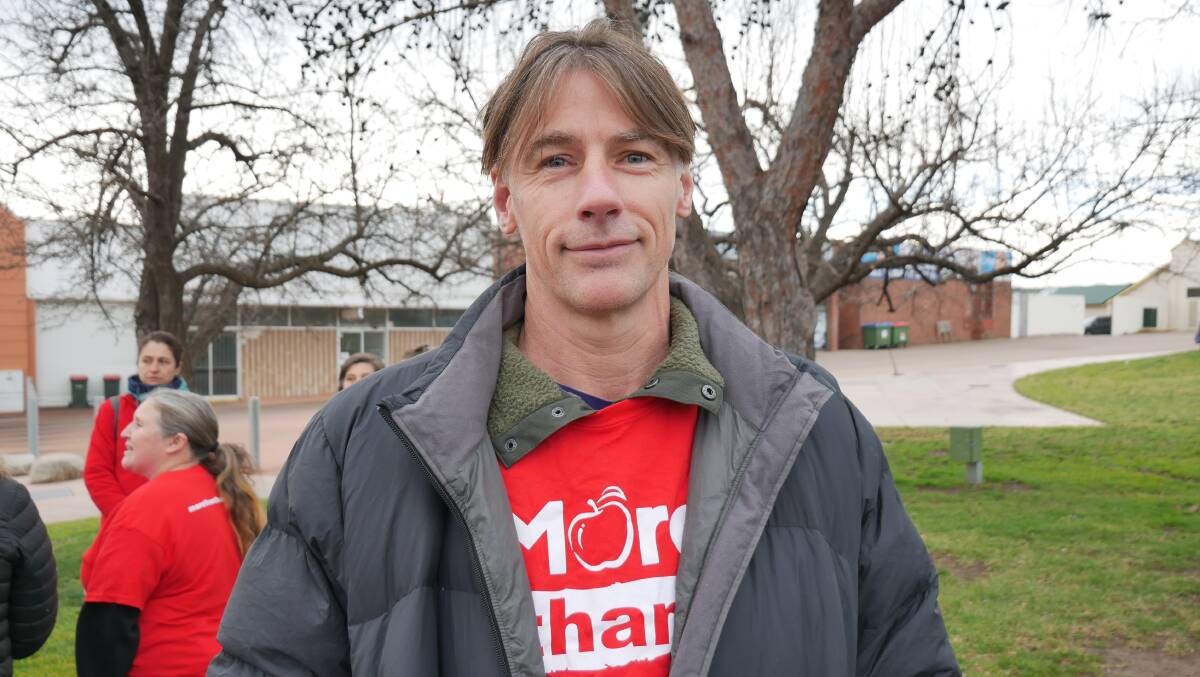For many students in the Bega Valley, school was out on Thursday June 30 after teachers marched off the job in a state-wide industrial action for better wages and more manageable workloads.
Subscribe now for unlimited access.
$0/
(min cost $0)
or signup to continue reading
Around 20 teachers met in Bega's Littleton Gardens in support of their peers, while a slew of other local teachers attended a rally at Batemans Bay Soldiers Club.
For the first time in 25 years, public and Catholic school teachers joined each other in walking off the job. The strike was organised by the NSW Teachers Federation and the Independent Education Union of Australia NSW/ACT.

A poll of 10,000 teachers conducted by the NSWTF earlier this year found 73% said their workload was unmanageable and 70% were reconsidering their position due to workload pressure.
Bega High School NSWTF representative David Britton said teachers in Bega have had to cover additional classes to deal with shortages "and that means students are missing out on learning".

He said shortages were leading to classroom mergers, teachers missing professional development and training, delays in student assistance, children with additional needs missing out on support, program cuts and only minimal supervision being provided.
READ ALSO: Striking teachers march to NSW parliament
"The goodwill of teachers is being abused by the government because they're taking it for granted. We're covering a deficient that should be dealt with as a system requirement, not teachers themselves," he said.
"People have seen how excessive the workload is and how hard teachers work and people are finding it hard to get in there because they can do better paying jobs somewhere else. People just won't find the profession attractive," he said.
READ ALSO: NSW sues teachers union over May strikes
Bega Valley Primary School NSWTF rep Lee-Anne Ecroyd said the profession had been eroded due to the unmanageable conditions. She predicted a "mass exodus" of teachers from the profession.
"We're not going to get the new students coming into teaching, they'll go into areas where they're more respected and treated better."
She thought this would lead to under-skilled teachers being employed, teachers being brought in from overseas, bigger workloads for teachers who stay, increased class sizes, as well as less individualised care for students.
READ ALSO: Deal on table to end NSW rail dispute
She also said in her 30 years of teaching she had witnessed a degradation in the respect of parents for the role of the teacher. She linked this to the portrayal of the strikes by the media and the government and how she believed teachers were criticised during COVID home learning.
"Parents see every day how teachers aren't respected by the government and the media who portray teachers as the enemy," she said.
Teachers have rejected the state government's offer for a 3 per cent pay rise in this year's state budget, instead asking for an increase of between 5 to 7.5% in the next wages agreement (covering 2022 and 2023).
Teachers have also called for additional relief time for primary and secondary teachers and for administration and compliance workloads to be reduced urgently.
Have your say. Send a letter to the editor using the form below


